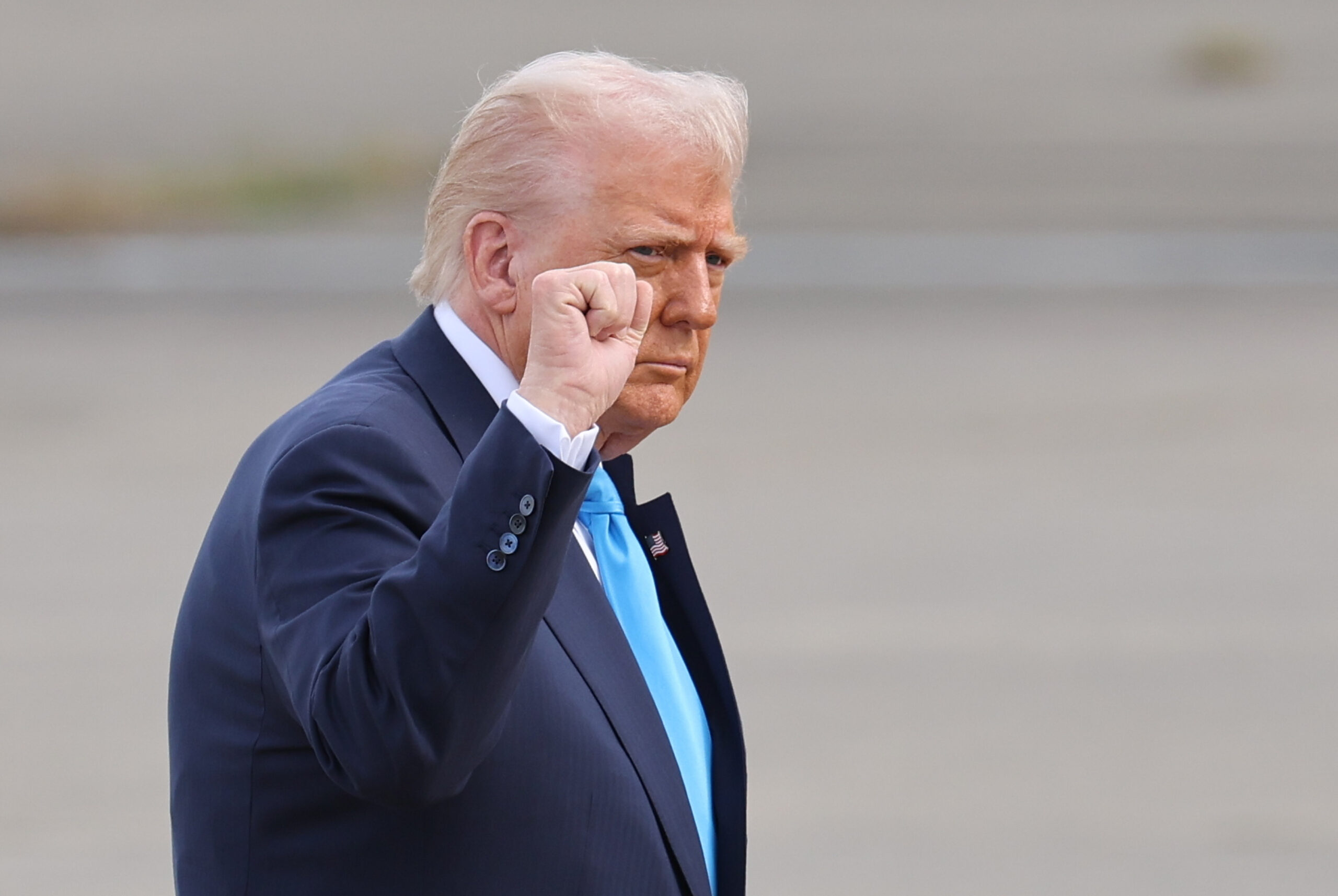President Trump Plans to Lower China Tariffs Over Fentanyl Exports Ahead of Xi Summit
GYEONGJU, South Korea — President Donald Trump announced Wednesday that he intends to lower his 20% tariff on China, imposed over fentanyl exports that have killed approximately 330,000 Americans over the past five years. He predicted that Chinese President Xi Jinping will make a “big step” to address the issue when they meet Thursday.
Trump also hinted that he is reconsidering a previously threatened 100% additional tariff on Chinese goods, which was set to take effect on November 1. This tariff was planned in protest of Beijing’s new export restrictions on products made with rare-earth and critical minerals.
“I expect to be lowering them because I believe that they can help us with the fentanyl situation. They’re going to be doing what they can do,” Trump told reporters aboard Air Force One as he traveled to South Korea. “We’re doing very well with rare earth, as you know, and I think we’re going to make a big step with fentanyl.”
Trump was en route to South Korea to participate in the Asia-Pacific Economic Cooperation (APEC) meetings ahead of his summit with President Xi. During the flight, Air Force One provided a stunning view of Mount Fuji, Japan’s tallest peak, according to footage posted to X by the president’s communications adviser, Margo Martin. The plane was later escorted into South Korea by two U.S. and two South Korean F-16 fighter jets, as shown in a separate video shared by Martin.
On Wednesday, Trump did not specify the exact measures China might take to curb fentanyl shipments. However, officials leaked to the Wall Street Journal that he is considering reducing the fentanyl tariff imposed in February from 20% to 10%.
Trump expressed optimism about the upcoming talks, saying, “I think we’re going to have a great meeting with President Xi of China, and a lot of problems are going to be solved,” referring to discussions between U.S. and Chinese negotiators in Kuala Lumpur, Malaysia, held ahead of the summit in South Korea. “We have been talking to them; we’re not just walking into a meeting cold,” he added.
The Fentanyl Crisis
Fentanyl is a potent synthetic opioid often mixed into other drugs or counterfeit prescriptions. It can be deadly in extremely low doses and has had a disproportionate impact on younger Americans.
During Trump’s first term, Xi committed to cracking down on fentanyl by imposing the death penalty on exporters. However, fentanyl exports surged at the end of 2020 amid deteriorating U.S.-China relations during the COVID-19 pandemic.
The drug has killed roughly one in every 1,000 Americans over the five-year period ending in April, according to data from the Centers for Disease Control and Prevention (CDC), the most recent available.
Xi renewed his commitment to halt fentanyl flow during a summit with then-President Joe Biden in November 2023. Since that meeting, overdose deaths have declined; approximately 44,000 Americans died from overdoses between March 2024 and April 2025, down from 68,000 in the previous 12 months. However, experts debate whether this decrease reflects fewer vulnerable individuals given the high prior death toll.
Most fentanyl and its precursor chemicals are sourced from China and smuggled into the U.S. through international mail, shipping channels, or across the border.
Economic and Political Dimensions
Trump previously told The Washington Post that his “first question” to Xi would be about fentanyl. “They make $100 million selling fentanyl into our country — $100 million. They lose $100 billion with the 20% tariff,” he said. “So it’s not a good business proposition.”
This dynamic underscores the ongoing tension between economic measures and efforts to curb the fentanyl crisis, a central issue influencing U.S.-China trade policies and diplomatic relations.


